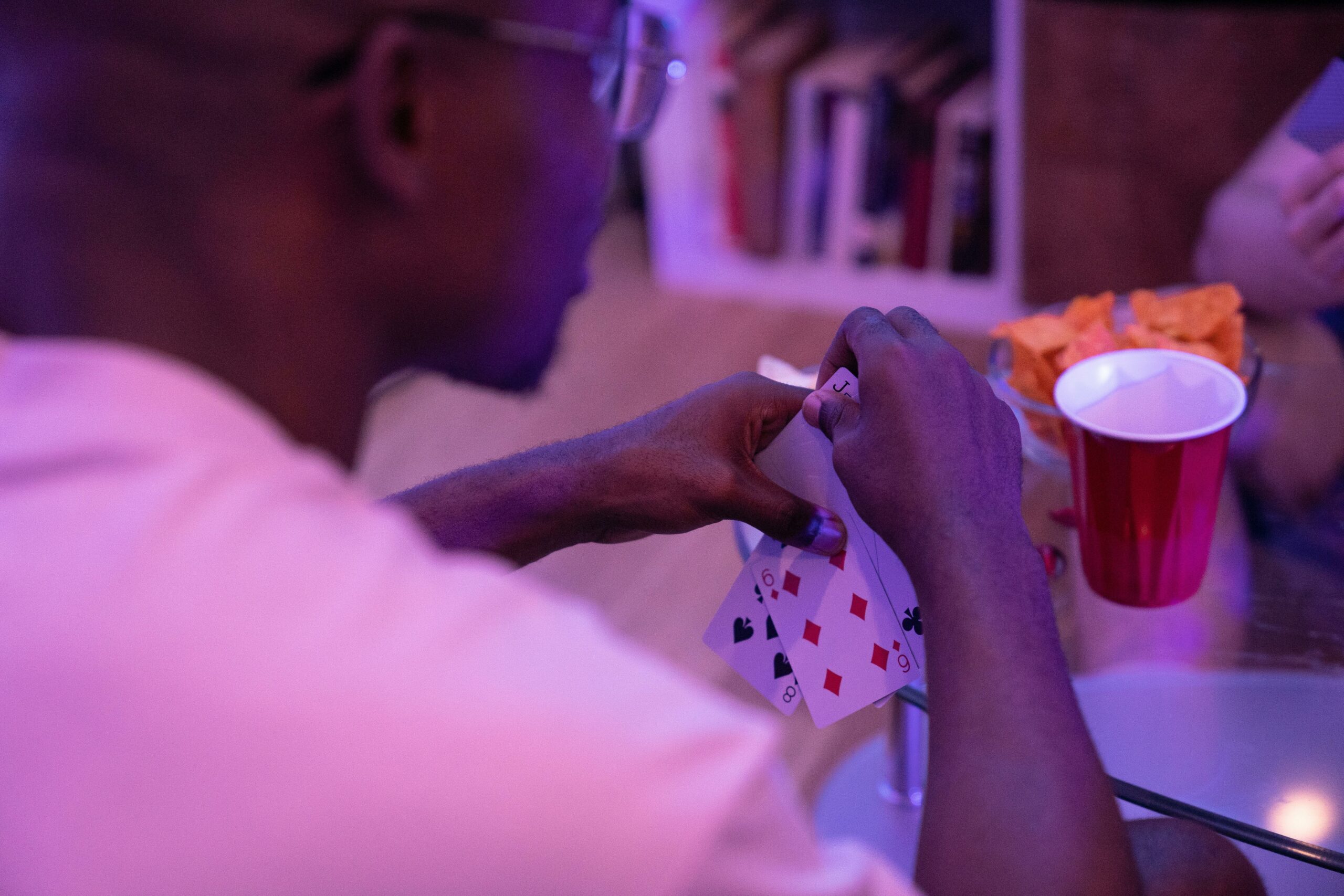Features
Azeezat Olatunde: How Card Games are Positively Transforming Relationships

With the brightest smiles, couples walk down the aisle hand in hand, fingers intertwined in the powerful exchange of love, trust, and commitment. Yet a few months, years, or even less down the line, the home becomes engulfed in heated arguments and faces contorted with less affection. This is one of the many bitter stories of divorced couples globally. It makes me wonder why a journey that begins on a sweet note turns sour in the blink of an eye.
According to a survey by Your Tango, poor communication contributes to 65% of divorces among couples. As revealed in many conversations, inadequate communication has a ripple effect on all relationships. It is known to be the root of financial issues, lack of empathy, resentment, reduced intimacy, neglect, conflicts, and loneliness.
The negative impact of poor communication extends beyond marriage; it also affects other relationships, especially between parents and children. Many African parents tend to adopt an authoritarian parenting style, which can hinder the development of a genuine connection with their children.
Effective communication is essential for nurturing bonds in all relationships. Certain topics, such as sex education between parents and children or discussions about intimacy and finances between couples, are often avoided due to shyness or discomfort. Therefore, becoming more comfortable discussing these seemingly difficult subjects is important.
To solve this, relationship card decks have been helping people converse on complex topics, facilitating healthy and thriving relationships. These are collections of card decks with communication prompts and preset questions designed to deepen conversations and encourage an exchange of feelings that increase empathy in relationships.
How Relationship Cards Work
To start, choose a card deck that resonates with both you and your spouse. Next, create the right atmosphere by putting away your devices and dedicating your time and emotions to the activity. Once both are ready, shuffle the cards, draw one, and read the question or prompt aloud. Your partner should then respond honestly or complete the prompt’s action. Take turns picking cards to ensure everyone has an equal opportunity to engage.
For example, in the Talking Point deck for couples, one question asks, “What things make you happy and sad as a parent and as a spouse?” This question encourages deeper emotional exploration beyond typical conversations at home, promoting vulnerability and helping each partner understand what truly affects the other’s happiness and sadness.
“Playing the cards exposed us to things we hadn’t been paying much attention to and often regarded as insignificant,” Maryam explained, smiling as she recalled the impact of playing the card games with her husband. “One card question that says: Where do you see yourself in ten years? prompted us to discuss our future, finances, and the steps to achieve our dreams. It is a very helpful guide and highly recommended to couples,” she added.
Dr Ameenah, a medical doctor, also shared how the cards have helped her in discussing seemingly difficult conversations with my husband. Even though your husband is your best friend, she said, there are some conversations that you will naturally avoid because you don’t want to hurt their feelings or come off as aggressive. The cards have made it easy to discuss those conversations.
Many couples and families, like Dr. Ameenah and Maryam, are discovering the value of communication prompts found in relationship card games. These games are not just meant for fun; they provide a safe space to discuss difficult topics and express emotions that may often go unspoken. Incorporating a relationship card deck into a couple’s or family’s routine can be immensely beneficial. For instance, families could set aside devices during the weekend to focus on quality time together to foster genuine connections and open conversations. It’s an approach that reduces tension and promotes communication in a non-threatening way that builds empathy among family members.
Relationship Card Games and Marriage Counselling
Bushroh Okeowo Bombata, a marriage counsellor and family practitioner, explained that while these relationship cards do not replace the need for marriage counselling, they can help resolve minor conflicts, uncover hidden emotions, and address feelings of resentment.
She emphasised that these cards enable partners to gain insight into each other’s emotions, goals, and desires, helping them reconnect with one another. Most importantly, they facilitate discussions about intimacy and ensure that both partners’ interests are aligned.
When asked about cards for parenting, she noted that specific card decks designed for parents assist them in understanding their children’s feelings and struggles. These cards encourage active listening, empathy, and quality family time, all of which are essential for building children’s confidence and communication skills by making them feel seen and included.
Bombata urged couples and parents to approach the prompts and questions on the cards with honesty and openness to foster healthy communication and strengthen their relationships. Essentially, intentionality is key to the effectiveness of these cards. It is also crucial to select age-appropriate card decks for children to foster seamless conversations. Couples can choose card decks that address topics they want to explore for maximum benefit.
***
Feature Image by Kevin Malik for Pexels






















